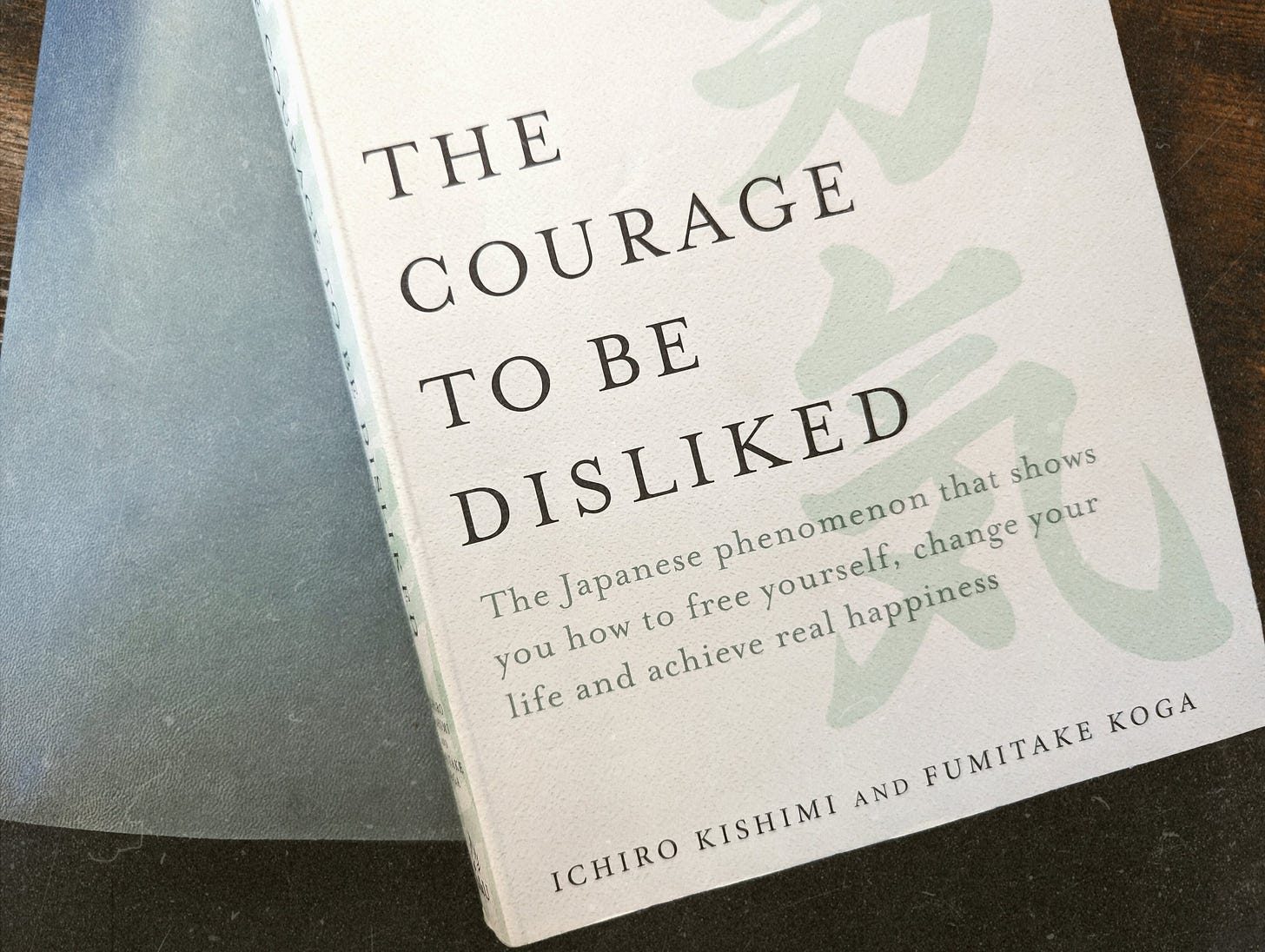A simple Recipe for Happiness from Adler's "Individual Psychology" (Book Summary)
From the Happiness PhD Project with Jackson Kerchis
Alfred Adler is one of history’s forgotten giants.
He is widely recognized by psychologists for his contributions to humanistic psychology and mental health practice, but he never quite got to Sigmund Freud or Carl Jung status. He founded the school of “Individual Psychology” — much like Freud had Psychoanalysis and Jung had Jungian Psychology.
Read his recipe for happiness below (based on The Courage to Be Disliked by Fumitake Koga & Ichiro Kishimi which summarizes Adler’s approach to health and happiness)…
“How to Cure Depression in 14 Days”
Adler developed a protocol for his patients with “melancholia” (e.g. depression).
He would challenge his patients to do one simple thing, every day, for 14 days: do something kind for someone else. How do you know what counts?
Every day for 14 days do something to make someone else smile.
He had never met a patient who truly followed through with this and didn’t see an immediate improvement. Why?
As another legendary psychologist, William James, explained — “The deepest principle in human nature is the craving to be appreciated.”
When we make someone else happy we can’t help but feel valuable, connected, and appreciated. As Ralph Waldo Emerson put it — “Happiness is a perfume you cannot pour on others without getting some on yourself.”
Modern social science research backs up this claim. I’ve written about it before (here).
Stephan Post in the International Journal of Behavioral Medicine summarized the scientific literature on altruism and prosocial behavior:
Altruistic (other-regarding) emotions and behaviors are associated with greater well-being, health, and longevity. This article presents a summary and assessment of existing research data on altruism and its relation to mental and physical health. It suggests several complimentary interpretive frameworks, including evolutionary biology, physiological models, and positive psychology. Potential public health implications of this research are discussed, as well as directions for future studies. The article concludes, with some caveats, that a strong correlation exists between the well-being, happiness, health, and longevity of people who are emotionally and behaviorally compassionate, so long as they are not overwhelmed by helping tasks.
Research shows acts of kindness leave a sort of “warm glow” associated with satisfaction and positive mood. Neural evidence suggests donating money can reduce the experience of pain. And altruistic people report higher life satisfaction, less depression, and more job satisfaction.
It’s good to be good!
Here’s a challenge for you…
Rate your happiness level from 1 to 10 for the last couple weeks. It’s just a gut reaction not super scientific. Write that number down somewhere you can come back to it in 2 weeks (or schedule an email to yourself).
Try Adler’s challenge: do something every day for the next two weeks to bring a bit of happiness to someone else.
Check back in on your happiness rating after and see if it changed.
Your happiness nerd,
Jackson K.
PS — If you want a full written summary of the book find it HERE and watch a video summary HERE.



